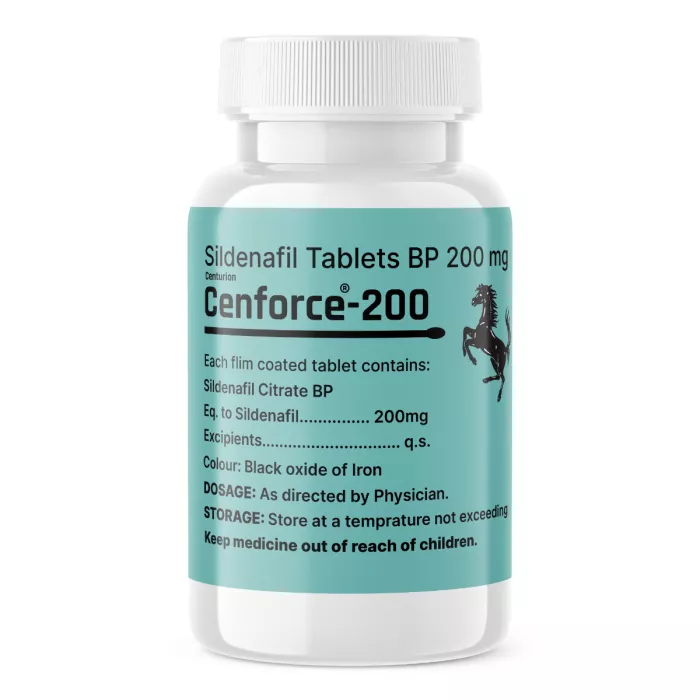It is usual for a person to occasionally be unable to produce or maintain an erection when sexually stimulated.
It is a common condition that affects many men worldwide and can be embarrassing and frustrating.
This article will explore what causes a man not to erect.
Additionally, we will delve into certain medications’ role in causing erectile difficulties.
What causes a man not to erect
Usually, not being able to achieve an erection is due to Erectile Dysfunction, but several other factors may cause a man not to erect.
But the frequent inability to achieve an erection may be a symptom of Erectile Dysfunction (ED).
Erectile Dysfunction can arise from various physical, psychological, and medical conditions.
Understanding these causes can aid in identifying and addressing the root of the problem.
Your doctor may prescribe medications like Cialis, Viagra, etc., for your ED problems.
Save up to 90% on your medicine bills

Cenforce 200 mg

Kamagra Oral Jelly Rx 100 mg

Fildena 100 mg

Vidalista 60 mg
Physical factors
Physical factors contributing to Erectile Dysfunction include cardiovascular disease, Diabetes, Obesity, high blood pressure, hormonal imbalances, and neurological disorders.
Various medical conditions, including prostate problems, Peyronie’s disease, Multiple Sclerosis, and certain types of cancer, can contribute to Erectile Dysfunction.
Psychological factors
Psychological factors, such as stress, Anxiety, Depression, relationship problems, and performance anxiety, can significantly impact a man’s erectile function.
Lifestyle factors
Certain lifestyle choices, such as smoking, excessive alcohol consumption, drug abuse, sedentary habits, and a poor diet, can have a negative effect on erectile function.
Parkinson’s disease produces involuntary movements, including shaking, stiffness, and difficulty with balance and coordination.
Medications that can impact erectile function
Certain medications, like Antidepressants, Diuretics, hormonal medications, etc., can impact erectile functions in males.
Below are some classes of medications that may contribute to difficulties in achieving or maintaining an erection:
Antidepressants
Antidepressants like Selective Serotonin Reuptake Inhibitors (SSRIs), have been linked to sexual side effects, including Erectile Dysfunction.
Antihypertensives
Certain antihypertensive medications, like Beta-blockers and Diuretics, affect erectile function. They can decrease blood flow to the penis, making it harder to achieve an erection.
Antipsychotics
Antipsychotic medications used to manage conditions like Schizophrenia and Bipolar disorder may have some sexual side effects, including Erectile Dysfunction.
Hormonal Medications
Hormonal medications, such as those used for Prostate Cancer treatment or Testosterone replacement therapy, can impact erectile function by altering hormone levels in the body.
Managing Erectile Dysfunction
 Source: RapidEye_from_getty_images
Source: RapidEye_from_getty_imagesFortunately, there are various approaches to managing and treating Erectile Dysfunction effectively.
Depending on your underlying causes, the doctor may recommend:
Lifestyle changes
Adopting a healthy lifestyle, including regular exercise, a balanced diet, limiting alcohol consumption, quitting smoking, and managing stress, can positively impact erectile function.
Psychological support
Counseling, therapy, and couples counseling can help address psychological factors contributing to Erectile Dysfunction, such as Anxiety or relationship problems.
Medication options
Different medications, such as Phosphodiesterase type 5 (PDE5) inhibitors like Viagra, Cialis, or Levitra, can be prescribed to enhance erectile function.
These medications improve penile blood flow and erectile function.
Alternative treatments
Alternative treatments like acupuncture, herbal supplements, and certain lifestyle practices may benefit some individuals.
However, consulting with a healthcare professional before pursuing alternative therapies is essential.
Conclusion
If you are not able to get an erection, it may be a symptom of Erectile Dysfunction.
Erectile Dysfunction can arise from physical, psychological, and lifestyle factors.
Physical factors like obesity, diabetes, etc., and psychological factors like anxiety and depression may lead to ED.
While medications, such as antidepressants, antihypertensives, antipsychotics, and hormonal medications, may contribute to difficulties achieving or maintaining an erection.
Understanding the many reasons which can cause a man not to erect is crucial in seeking appropriate treatment and support.
By addressing underlying causes, making lifestyle changes, seeking psychological support, and considering medication options, many men can successfully manage this condition and restore their sexual well-being.
Remember, seeking professional help is essential for a comprehensive evaluation and personalized treatment plan.

Frequently Asked Questions
Why is my husband not getting erect?
Various factors could cause your husband’s erection problems.
Physical causes include cardiovascular illness, Diabetes, Obesity, high blood pressure, hormone imbalances, and neurological diseases.
Stress, Depression, and performance anxiety, smoking, and excessive alcohol can also affect erectile function.
Support your husband in getting medical help to determine the reason and treatment choices.
At what age do guys have trouble getting hard?
Usually, Erectile Dysfunction affects men of all ages, but it becomes more prevalent as they age.
Aging causes more physical health issues, like heart diseases that can cause erection issues.
While it’s true that the likelihood of experiencing erectile difficulties increases with age, it is not solely an age-related issue.
Erectile problems can occur due to psychological factors, lifestyle choices, or underlying health conditions.
What causes a man not to erect fast?
The speed at which a man achieves an erection can vary depending on numerous factors.
Sometimes, the inability to achieve an erection quickly may be due to psychological factors like stress and Anxiety.
These variables can interfere with the body’s natural response to sexual arousal, delaying the onset of an erection.
What drugs cause a man to not get hard?
Certain medications can potentially contribute to Erectile Dysfunction as a side effect.
Some classes of medicines known to have an impact on erectile function include certain Antidepressants (Selective Serotonin Reuptake Inhibitors – SSRIs, Tricyclic Antidepressants – TCAs, Monoamine Oxidase Inhibitors – MAOIs), Antihypertensives (beta-blockers, diuretics), Antipsychotics, and hormonal medications.
Can Erectile Dysfunction be cured?
Erectile Dysfunction is not curable but it is treatable.
Lifestyle modifications like regular exercise and a healthy diet can help improve erectile function.
Counseling and therapy can help address any psychological factors contributing to the condition.
Medications like Viagra, Cialis, or Levitra can enhance erectile function for many individuals.
Cheap Medicine Shop only refers to credible, authoritative sources for our content. If you’re curious about how we ensure the integrity of our content, we encourage you to read our Content Information Policy.














